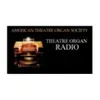Organ Live Radio Stations
Radio Stations
Choose a Genre
The Majestic Sound of the Organ: A Timeless Musical Experience
For centuries, the pipe organ has stood as one of the most revered and powerful instruments in the world of music. Known for its deep, resonant tones and ability to fill large spaces with a sound that is both majestic and moving, the organ is a symbol of musical grandeur and emotional depth. Organ radio stations provide an opportunity to experience the awe-inspiring beauty of this instrument, offering a diverse selection of music that spans from religious hymns to secular compositions and beyond.
A Historical Instrument of Power and Prestige
The organ’s history dates back to the Middle Ages, making it one of the oldest instruments still in widespread use today. Originally designed for use in religious settings, the organ has been a staple in churches and cathedrals around the world for centuries. Its association with sacred music has made it a powerful symbol of both spirituality and artistic expression. However, the organ’s versatility has allowed it to transcend its religious roots, finding a place in secular music, film scores, and even popular genres like rock and jazz.
Organ music has the ability to evoke a sense of awe and reverence, largely due to the sheer size and power of the instrument. With its grand pipes stretching high into the air and multiple manuals (keyboards) controlled by the organist, the sound produced is rich, complex, and enveloping. Whether it’s a quiet, introspective melody or a thunderous, overwhelming crescendo, the organ has the capacity to express a vast range of emotions, from deep reflection to overwhelming joy.
Creating Grandeur and Majesty
One of the key features of organ music is its ability to create an atmosphere of grandeur and majesty. The organ’s unique tonal qualities and immense volume make it the perfect instrument for producing music that fills a space and resonates deeply with the listener. The combination of multiple registers and ranks of pipes, each producing different timbres, allows organists to create complex harmonic textures that are both captivating and powerful.
Organ music has long been associated with ceremonial occasions, religious services, and monumental events, partly due to its ability to evoke feelings of solemnity and reverence. Whether heard in the context of a church service, a concert hall, or a film score, the sound of the organ brings a sense of dignity and formality to any occasion.
Harmony, Counterpoint, and Musical Complexity
The organ's capability for producing multiple voices simultaneously sets it apart from many other instruments. With its ability to combine complex harmonies and counterpoint, organ music often features intricate layers of sound that weave together in a way that is both intellectually stimulating and emotionally satisfying.
Many organ compositions, especially those from the Baroque period, are known for their use of counterpoint, where multiple melodies are played simultaneously but independently of one another. This creates a rich, textured sound that can be both intricate and dramatic. Composers such as Johann Sebastian Bach mastered this technique, creating some of the most complex and enduring works in the organ repertoire.
The organ also offers an unmatched degree of control over dynamics, allowing the performer to produce anything from a soft whisper to a powerful, overwhelming sound. The interplay between these contrasting dynamics creates a compelling emotional journey, with music that can range from serene and meditative to exuberant and celebratory.
The Organ’s Role in Popular and Secular Music
While the organ is most commonly associated with classical and religious music, its influence extends into other genres as well. In the world of rock music, the organ has been a crucial instrument in shaping the sound of bands like The Doors and Deep Purple. Its deep, resonant tones blend seamlessly with other instruments, adding a layer of complexity and richness to the music.
In addition, the organ has become a staple in film scores, where its majestic sound is often used to heighten emotional moments or convey a sense of grandeur. The organ’s ability to evoke deep emotions and dramatic tension has made it a favored instrument in cinema, particularly in epic or historical films.
Organ Radio Stations: A Unique Listening Experience
For those seeking a deeper connection with the rich history and sound of the organ, organ radio stations offer a unique musical experience. Whether you’re a fan of classical compositions, religious hymns, or secular pieces, these stations provide a diverse selection of music that showcases the versatility of the pipe organ.
Listening to organ music on the radio allows you to experience the full range of the instrument’s capabilities, from the subtle nuances of a solo piece to the overwhelming power of a full organ ensemble. Whether you’re seeking peace and reflection or a thrilling musical journey, organ music offers a timeless and emotionally resonant experience that is truly unlike any other.
A Lasting Legacy of Musical Excellence
The pipe organ has endured as one of the most respected and enduring instruments in the history of music. Its ability to convey grandeur, intricacy, and emotion has ensured its place in the cultural consciousness, influencing generations of composers, musicians, and listeners. Organ radio stations celebrate this legacy, offering a musical space where listeners can connect with the instrument’s rich history and diverse soundscape.
So, whether you are a long-time fan of the organ or a newcomer to its majestic sound, tuning in to an organ radio station will immerse you in a world of musical beauty that is as timeless as the instrument itself.
For centuries, the pipe organ has stood as one of the most revered and powerful instruments in the world of music. Known for its deep, resonant tones and ability to fill large spaces with a sound that is both majestic and moving, the organ is a symbol of musical grandeur and emotional depth. Organ radio stations provide an opportunity to experience the awe-inspiring beauty of this instrument, offering a diverse selection of music that spans from religious hymns to secular compositions and beyond.
A Historical Instrument of Power and Prestige
The organ’s history dates back to the Middle Ages, making it one of the oldest instruments still in widespread use today. Originally designed for use in religious settings, the organ has been a staple in churches and cathedrals around the world for centuries. Its association with sacred music has made it a powerful symbol of both spirituality and artistic expression. However, the organ’s versatility has allowed it to transcend its religious roots, finding a place in secular music, film scores, and even popular genres like rock and jazz.
Organ music has the ability to evoke a sense of awe and reverence, largely due to the sheer size and power of the instrument. With its grand pipes stretching high into the air and multiple manuals (keyboards) controlled by the organist, the sound produced is rich, complex, and enveloping. Whether it’s a quiet, introspective melody or a thunderous, overwhelming crescendo, the organ has the capacity to express a vast range of emotions, from deep reflection to overwhelming joy.
Creating Grandeur and Majesty
One of the key features of organ music is its ability to create an atmosphere of grandeur and majesty. The organ’s unique tonal qualities and immense volume make it the perfect instrument for producing music that fills a space and resonates deeply with the listener. The combination of multiple registers and ranks of pipes, each producing different timbres, allows organists to create complex harmonic textures that are both captivating and powerful.
Organ music has long been associated with ceremonial occasions, religious services, and monumental events, partly due to its ability to evoke feelings of solemnity and reverence. Whether heard in the context of a church service, a concert hall, or a film score, the sound of the organ brings a sense of dignity and formality to any occasion.
Harmony, Counterpoint, and Musical Complexity
The organ's capability for producing multiple voices simultaneously sets it apart from many other instruments. With its ability to combine complex harmonies and counterpoint, organ music often features intricate layers of sound that weave together in a way that is both intellectually stimulating and emotionally satisfying.
Many organ compositions, especially those from the Baroque period, are known for their use of counterpoint, where multiple melodies are played simultaneously but independently of one another. This creates a rich, textured sound that can be both intricate and dramatic. Composers such as Johann Sebastian Bach mastered this technique, creating some of the most complex and enduring works in the organ repertoire.
The organ also offers an unmatched degree of control over dynamics, allowing the performer to produce anything from a soft whisper to a powerful, overwhelming sound. The interplay between these contrasting dynamics creates a compelling emotional journey, with music that can range from serene and meditative to exuberant and celebratory.
The Organ’s Role in Popular and Secular Music
While the organ is most commonly associated with classical and religious music, its influence extends into other genres as well. In the world of rock music, the organ has been a crucial instrument in shaping the sound of bands like The Doors and Deep Purple. Its deep, resonant tones blend seamlessly with other instruments, adding a layer of complexity and richness to the music.
In addition, the organ has become a staple in film scores, where its majestic sound is often used to heighten emotional moments or convey a sense of grandeur. The organ’s ability to evoke deep emotions and dramatic tension has made it a favored instrument in cinema, particularly in epic or historical films.
Organ Radio Stations: A Unique Listening Experience
For those seeking a deeper connection with the rich history and sound of the organ, organ radio stations offer a unique musical experience. Whether you’re a fan of classical compositions, religious hymns, or secular pieces, these stations provide a diverse selection of music that showcases the versatility of the pipe organ.
Listening to organ music on the radio allows you to experience the full range of the instrument’s capabilities, from the subtle nuances of a solo piece to the overwhelming power of a full organ ensemble. Whether you’re seeking peace and reflection or a thrilling musical journey, organ music offers a timeless and emotionally resonant experience that is truly unlike any other.
A Lasting Legacy of Musical Excellence
The pipe organ has endured as one of the most respected and enduring instruments in the history of music. Its ability to convey grandeur, intricacy, and emotion has ensured its place in the cultural consciousness, influencing generations of composers, musicians, and listeners. Organ radio stations celebrate this legacy, offering a musical space where listeners can connect with the instrument’s rich history and diverse soundscape.
So, whether you are a long-time fan of the organ or a newcomer to its majestic sound, tuning in to an organ radio station will immerse you in a world of musical beauty that is as timeless as the instrument itself.
![ATOS [AAC]](/100/Uynw26iDWlZwU0hZm35Uk.webp)




![Positively Baroque [Europe stream]](/100/Vcaedj8bjHH3VECKytU3O.webp)
